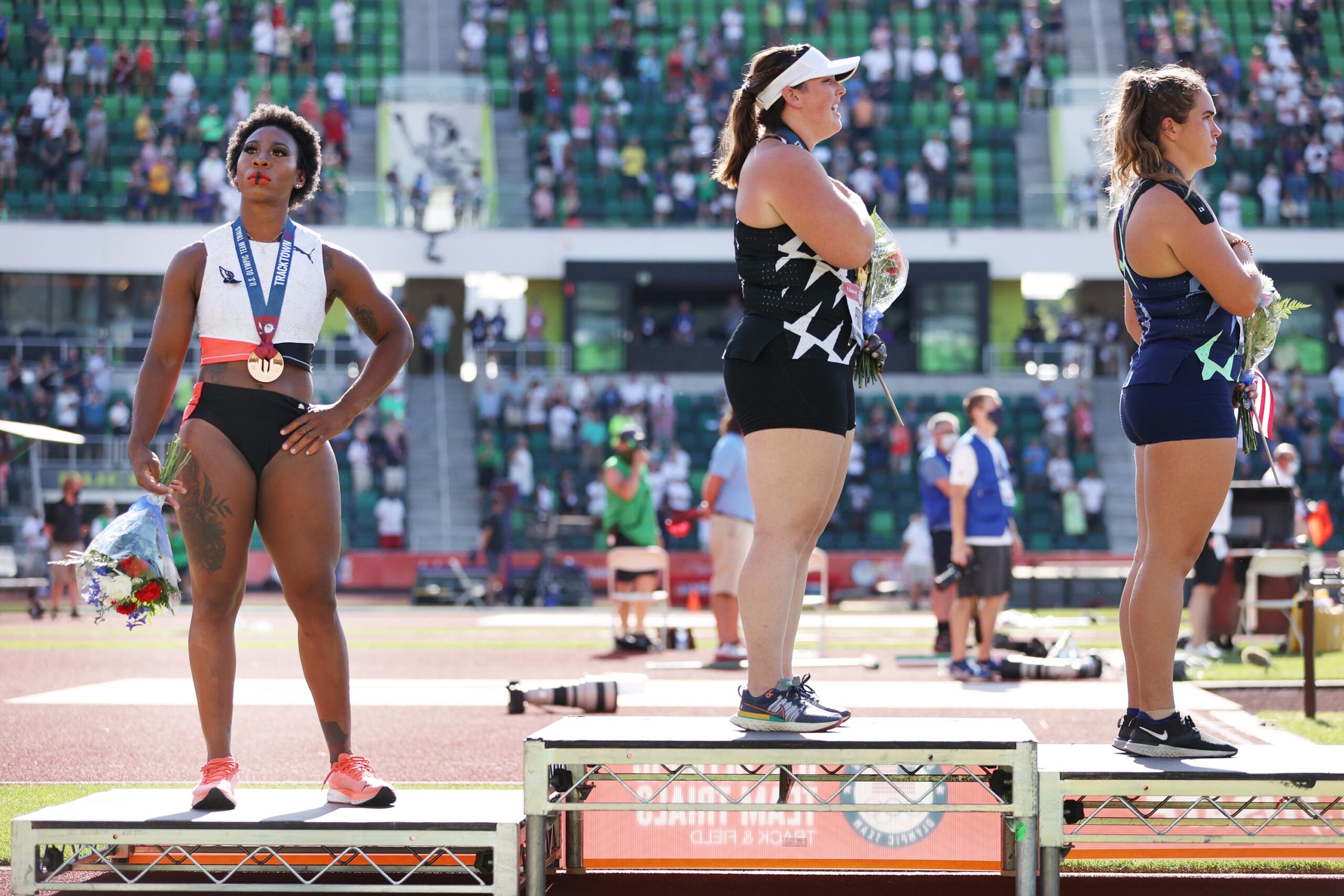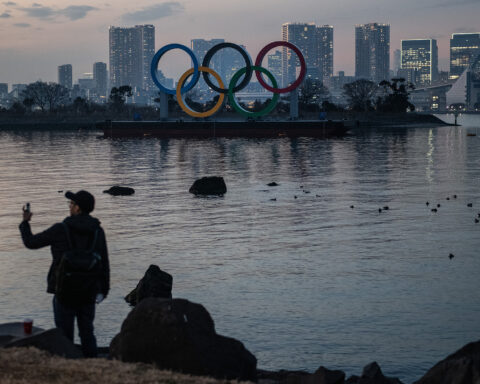Over 150 athletes, sports organizations, human rights and social justice experts have signed an open letter calling on the International Olympic Committee (IOC) to allow athletes the “fundamental human right” to protest, including at the podium.
As the Tokyo Games open, the signatories — including US hammer thrower Gwen Berry as well as 1968 medalists Tommie Smith and John Carlos, who famously raised gloved fists on the podium — have urged the IOC to “refrain” from sanctioning athletes who demonstrate.
The letter calls for the removal of the IOC’s Rule 50 ban, which prohibits athletes from protesting at Olympic sites.
Following a 10-month review of the rule that concluded in April, the body decided to uphold it, but in July added an amendment allowing athletes to express their views in mixed zones, press conferences and during interviews, as well as prior to the start of competition.
The IOC has said the rule aims to ensure that the focus at the Olympic Games remains on athletes’ performances.
The letter acknowledges the amendment, named Rule 50.2, as a signal the IOC is “open to continued engagement.” But it claims the changes do not “reflect a commitment to freedom of expression as a fundamental human right nor to racial and social justice in global sport.”
It states: “We believe the global sport community is at a turning point in matters of racial and social justice, and we call on you as leaders in the Olympic and Paralympic Movements to make a stronger commitment to human rights, racial/social justice, and social inclusion.”
‘A fundamental human right’
Gwen Berry, a 32-year-old contender to medal in Japan and a signatory of the letter, drew much attention when she refused to face the American flag during the playing of the National Anthem at June’s US Olympic Track and Field trials.
Berry, who is slated to begin her Olympic competition on July 31, tweeted her support of the petition on Thursday, saying, “We need to take a STAND.”
Speaking to The Guardian newspaper in the UK on Thursday, British sprinter Dina Asher-Smith also called on the IOC to remove the ban, saying: “Protesting and expressing yourself is a fundamental human right.”
“If you were to penalize someone for standing up against racial inequality how on earth would that go? How on earth are you going to enforce that?”
“When people feel strongly about something, particularly when it’s something that’s so close to your heart — and as a black woman you think about racism — I just think you can’t police people’s voice on that. That’s an incredibly difficult thing to do.”
Responding to the letter in a statement on Friday, the IOC reiterated its position, and said it had worked with 3,500 athletes to design the current amended rules.
“Rule 50.2 provides a framework to protect the neutrality of sport and the Olympic Games,” a spokesperson said in a statement.
“While asking for more opportunities for athlete expression during the Olympic Games, global athlete representatives expressed their support for keeping the podium, the field of play and the ceremonies free from any form of protest.”






